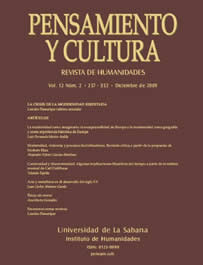La modernidad como imaginario: la excepcionalidad de Europa o la modernidad como geografía y como experiencia histórica de Europa
Keywords:
Europe, modernity, globalization, exceptionality, rationality, multiple modernities, waves, resonancesAbstract
The study of globalization undertaken by the social sciences shows multiple facets of the present and the future, as well as the past. The epistemological change found in methodological cosmopolitanism reveals a past that is different from the one presented to us in conventional historiography. The history of Europe is reinterpreted not as a particular or special event, but as the result of global dynamics, waves of globalization that have their remote origin in antiquity. Study based on the social sciences focused with a broader historic lens; that is, from the standpoint of globalization, highlights a process in which Europe and modernity are represented as contingencies and not as teleologies that would determine world history. The social sciences have broken free of the confines of Eurocentrism, and multiple modernities have emerged as a result, above all, a complex analysis in which epistemic colonialism is debilitated.
Downloads
Issue
Section
License
1. Proposed Policy for Journals That Offer Open Access
Authors who publish with this journal agree to the following terms:
This journal and its papers are published with the Creative Commons License Attribution-NonCommercial-NoDerivatives 4.0 International (CC BY-NC-ND 4.0). You are free to share copy and redistribute the material in any medium or format if you: give appropriate credit, provide a link to the license, and indicate if changes were made; don’t use our material for commercial purposes; don’t remix, transform, or build upon the material.


